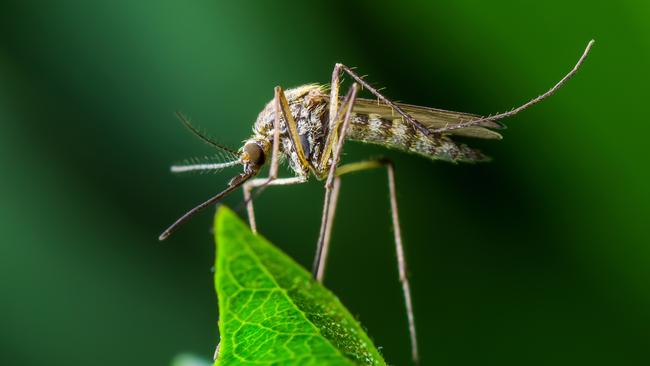Ross River virus down, dengue fever cases up in Greater Geelong
Environmental factors including drought and climate change are influencing vector-borne disease rates, local health experts say.

Geelong
Don't miss out on the headlines from Geelong. Followed categories will be added to My News.
Environmental factors including drought and climate change are influencing vector-borne disease rates, local health experts say.
Some tropical diseases have increased slightly in Greater Geelong, new data reveals, with the rise attributed to increased returned travellers.
Meanwhile, drought is driving a decrease in another mosquito-borne virus that surged locally in 2017.
There were six cases of dengue virus infection recorded between January 1 and July 20, compared with none over the same period last year.
There was just one in that period in 2017, but 13 in 2016 in the same time frame, Health Department shows.
MORE NEWS: LIQUIDATOR CALLED IN FOR SPEAKY’S
WHY PEOPLE AREN’T MOVING TO TOURIST HAVEN
FRAUDSTER’S HEAVY HEART AT SALON CLOSURE
Barwon Health department of infectious disease director Eugene Athan said dengue fever cases were still uncommon locally.
“An increase in returned travellers only can be attributed to the increase locally, while climate change is increasing vector-borne disease globally,” Professor Athan said.
Parts of South America, Asia and Africa are deemed high-risk areas for dengue fever.
In Greater Geelong there have been two cases of Chikungunya virus infection recorded this year, up from one in the same period in 2018.
The mosquito-borne condition is particularly found in Africa, Asia and India, and symptoms include fever and joint pain.
And one case of malaria has been recorded, compared with none over the same period last year. Malaria is transmitted through mosquitoes and occurs in tropical areas.
Symptoms include chills, sweating and fever.
However, Ross River virus infection cases have plummeted.
An outbreak in 2017 saw 64 cases between January 1 and July 20 in Greater Geelong.
The City of Greater Geelong then rolled out Victoria’s biggest mosquito management program last October that year.
Last year over the same period there were four cases, while so far this year there has just been one recorded.
Professor Athan said the national drought had reduced mosquito numbers in Australia.
Across the state, Chikungunya virus and malaria cases are down on last year, while Dengue virus infection cases have increased slightly.
Ross River virus infections were up slightly on the same period last year across Victoria.
Originally published as Ross River virus down, dengue fever cases up in Greater Geelong


